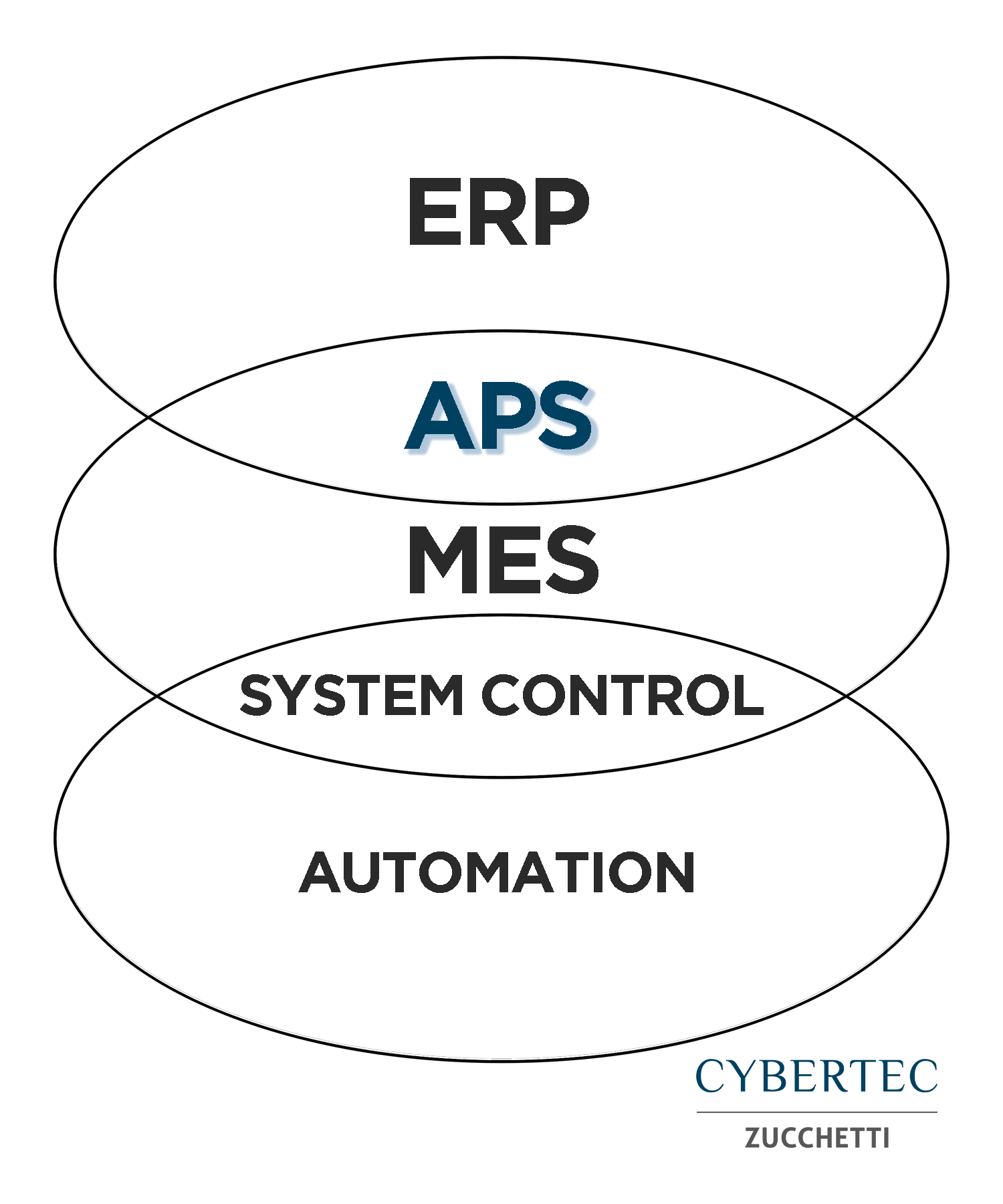Periods of growth or contraction of the market are a source of even sudden changes in the production of manufacturing companies. The ability to manage these evolutions lies in the ability of the manufacturing company to manage production efficiently and effectively, simulating the future behaviour of the company based on current data. To increase competitiveness, it is necessary to carry out continuous analysis and optimize processes at a strategic, tactical and operational level, for which it is necessary to equip oneself with support tools such as the famous MES and scheduling offices. But in a period of economic uncertainty which of the two to implement first?
Tools to support the decision-making process for manufacturing
Business management, particularly in manufacturing, requires decision-making and planning processes at different levels. Due to the growing demands of the market, it is necessary to carry out analysis and optimisation of processes at a strategic, tactical and operational level on an ongoing basis.
It is also important that decisions are made on the basis of reliable data, preferably collected in real time. These methods require the support of information systems useful for business management.
Achieving strategic objectives requires developing strategic and operational plans for specific business units, teams, and even individual employees. In addition, it is necessary to give visibility to employees of the impact their work has on the implementation of strategic objectives in the light of current activities.
The correct use of company resources, good decision-making and proper operational management influence the outcome of strategic plans. It is therefore necessary to consider having an integrated ERP-MES-APS IT system.
Whatis a MES?
MES is the acronym for Manufacturing Execution System, or a computerized system whose main purpose is to manage and control the production of a company. A fundamental characteristic of an ESM is its integration with the production process through connections with machines or operator declarations. The offices thus have a complete and direct view of the progress of orders, the status of resources and materials used.
Whatis an APS?
APS is an advanced production planning and scheduling system (the Anglo-Saxon acronym stands for Advanced Planning & Scheduling). These are solutions that use algorithms and mathematical logic for optimization and production simulation issues, in order to solve scheduling problems leading to important economic results. In particular, it allows you to make what if assessments of future production behaviour, allowing you to identify critical issues in time. The main results are in terms of service level, increased efficiency and reduced WIP.
Which comes first, between APS and MES?
Each of the APS and MES systems operates independently to achieve the objectives set at the company level, from different perspectives. Each of them, thanks to the specialization and functions offered, supports the strategy to a limited and specific extent for their sector. The integration of these systems with ERP makes it possible to significantly increase the effectiveness of business management. But which is better to implement first?
Given that APS and MES are departmental and therefore go to the support of management (or ERP) for specific tasks that require high specialization, the implementation of one or the other has different purposes and consequences.
Between the two software solutions, it is certainly advisable to implement APS first, this is because a MES, even if evolved and modern, cannot give forecasts about the future and information to management as much as an APS; the MES allows us to know the current situation of the production department, the pace of production of machinery and the progress of orders, in short, it provides data to the ERP and APS systems. On the other hand, APS is able to process data from the ERP and, where implemented, also from the MES to provide management with simulations on future what-if scenarios, with finite capacity. This possibility allows companies to prevent risks, delays in deliveries and profit losses.
The advantages of production scheduling
Production scheduling brings numerous benefits to manufacturing companies that use these solutions to schedule future production. In particular, the main advantages obtained are:
- Reduction of machine changes;
- Reduction of inventories and alignment with real needs;
- Reduction of the effort required of planners;
- Increased production efficiency;
- Alignment of workloads in production;
- Updated and timely information;
- Estimates of precise delivery dates.
The consequences in terms of performance of the production department are therefore multiple and positive. From increasing productivity to reducing production costs to improving the level of service. These reasons mean that tools for production scheduling are increasingly widespread in the most efficient companies.
What decision-making tools, for manufacturing companies?
Companies in the manufacturing sector today have the opportunity to increase their competitiveness thanks to software solutions that can help them perform better. A modern and prudent management of production capacity fully responds to what are the requirements of today’s manufacturing companies that we have just seen. Added to this is the fact that today you can get the APS tool as a Software As A Service and as a cloud service, which allows you to lower your upfront costs. Find out now how to empower your company and make a difference with APS and MES systems by contacting a Cybertec expert.


